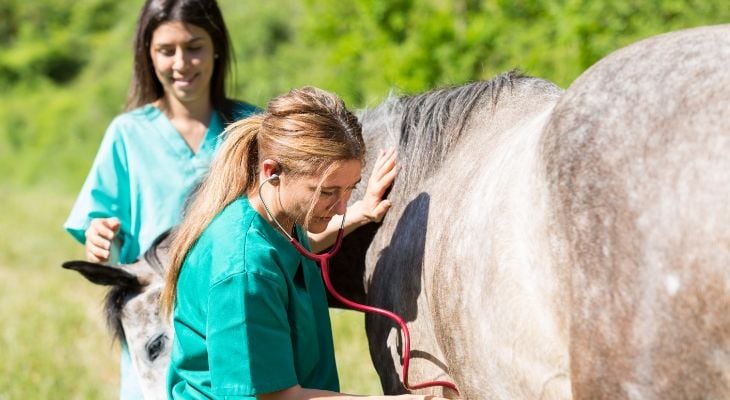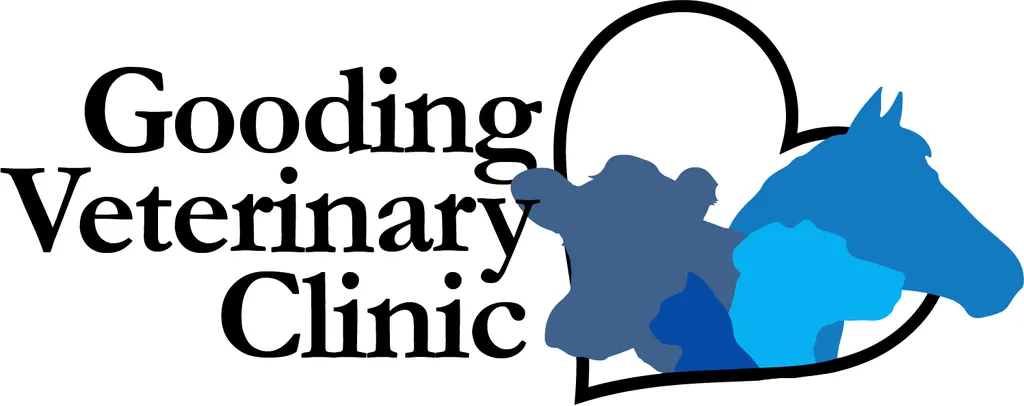
Cushing’s disease (also known as pituitary pars intermedia dysfunction, or PPID) is the most common disease affecting the endocrine system of horses. This group of glands produces hormones that help keep the body in balance. With Cushing’s disease, an imbalance of these hormones causes several symptoms, such as a long, wavy coat of hair that the horse doesn’t shed normally with the seasons.
Causes of Cushing’s Disease
Cushing’s disease involves the hormone-producing pituitary gland, which is located at the base of the brain. In dogs and humans, a tumor in the pituitary gland is often the cause of Cushing’s disease, but this is not common in horses. However, tumors in the pituitary gland may later develop in horses with Cushing’s disease.
Cushing’s disease in horses is related to a different part of the pituitary gland (the pars intermedia) than it is in dogs and humans. This part of the pituitary gland becomes enlarged and produces excess amounts of certain hormones.
In dogs and humans, the overactive pituitary gland results in an excess of the stress hormone cortisol, which is produced by the adrenal glands. In horses, though, cortisol levels vary, and are normal or even low. Other hormones, therefore, may be responsible for the symptoms of Cushing’s disease in horses.
Symptoms of Cushing’s Disease
Cushing’s disease occurs in horses over the age of 15 years, more often in geldings and mares. Symptoms of this condition include:
- Unusually long (up to 4 or 5 inches) or heavy coat of hair (hypertrichosis), with the hair often matted, thick and wavy
- Excess sweating
- Excessive thirst and urination
- Increased appetite
- Energy loss
- Chronic laminitis
- Weight loss
- Loss of muscle mass
- Enlarged abdomen
- Eyes that bulge
Cushing’s disease can also weaken a horse’s immune system. This can increase a horse’s chance of developing infections (such as respiratory infection or dental disease) or suffering from parasites. Wounds may also take longer to heal.
If treatment is not provided, a horse’s symptoms will worsen. Eventually, the horse may need to be euthanized because of severe laminitis, foot abscesses that keep returning or bacterial infections.
Diagnosing Cushing’s Disease
Equine veterinarians use these symptoms, along with a physical exam and blood tests, to diagnose the condition. The laboratory tests that your equine veterinarian might use include:
- Blood tests such as a dexamethasone suppression test or plasma ACTH concentration test
- Tests for related conditions, including testing for blood glucose and insulin levels
Treatment for Cushing’s Disease
Treatments are available for Cushing’s disease that can improve a horse’s condition. In some cases, its health may return to normal. Treatment, however, must continue throughout the horse’s lifetime, given that there is no way to completely eliminate the disease.
Medication
Two drugs that are commonly used to treat Cushing’s disease are cyproheptadine and pergolide. Delivering these medications requires daily injections, regular checkups by an equine veterinarian and routine blood tests to monitor how well the horse is responding to the drug. Symptoms can reappear within a few weeks if the treatment is stopped.
Additional Treatments for Secondary, or Consequent, Health Conditions
Special attention should also be paid to areas of the horse’s health that can be affected by Cushing’s disease. This can be done by:
- Providing good-quality feed and avoiding those with high amounts of sugar or molasses (unless needed to stimulate the horse’s appetite)
- Deworming regularly
- Caring for the teeth and hooves
- Proper grooming and skin care
- Providing preventive care to head off problems such as bacterial infections
If your horse is exhibiting signs of Cushing’s disease or any other health problems, contact our practice to schedule an appointment.
